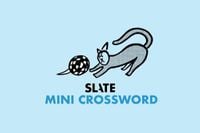For puzzle enthusiasts and word game lovers, October 17, 2025, offered a double dose of daily challenges, with both Slate’s Pears Game and the ever-popular Yahoo Mini Crossword drawing in thousands of players. Each game, unique in its approach and style, continues to captivate a growing audience eager for a quick mental workout during their midday break.
At precisely noon Eastern, Slate released Pears Game 62, maintaining a tradition that has quickly become a staple for its dedicated fanbase. According to Slate, new Pears are made available every day at noon, with each iteration presenting a fresh opportunity for players to test their vocabulary and wit. The previous day’s Game 61 saw the word “CROSSWORDS” crowned as the longest entry—a fitting nod to the genre and perhaps a sly wink to the puzzle community at large.
Adding to the playful spirit, Slate recently introduced the word “WEIRDOS” into the mix, demonstrating the game’s evolving and sometimes whimsical word list. The editorial team even encourages players to suggest new words, inviting them to send their ideas directly to [email protected]. This open-door policy has fostered a sense of community and participation that’s rare in the world of online games, making each daily release feel like a collaborative event.
Meanwhile, over at Yahoo, the Mini Crossword continues to be a crowd-pleaser. The October 17 edition featured a compact 5x5 grid, challenging players to fill in answers as quickly as possible. The numbers speak for themselves: a remarkable 27,045 people played the daily Crossword recently, according to Yahoo’s own statistics. That’s a testament to the enduring appeal of a well-designed puzzle—simple in format, but endlessly engaging.
What’s behind this surge in daily puzzle popularity? For many, it’s about more than just filling in boxes or finding a clever word. These games offer a brief escape from the daily grind, a moment to flex mental muscles, and, perhaps most importantly, a chance to connect with others over a shared love of language. Whether you’re racing the clock to beat your best time or savoring the satisfaction of discovering a particularly tricky answer, there’s a universal thrill in cracking the code.
The competitive spirit is alive and well, too. Yahoo’s Crossword invites players to see if they can “solve it faster than others,” adding an element of friendly rivalry to the mix. With tens of thousands of participants, the leaderboard is always in flux, and even a few seconds can make the difference between a personal best and an average run. It’s not just about speed, though; it’s also about the joy of learning new words and seeing familiar ones in unexpected places.
Slate’s Pears Game, on the other hand, leans into the communal aspect of wordplay. By soliciting suggestions and celebrating standout entries like “CROSSWORDS” and “WEIRDOS,” the game blurs the line between creator and audience. Each new word added is a small victory for the player who suggested it, and a fresh challenge for everyone else. It’s a reminder that language is always evolving—and that games can be a powerful engine for creativity.
There’s also something to be said for the ritual of these daily releases. For regular players, the noon drop of a new Pears puzzle or the morning refresh of the Mini Crossword becomes a small but meaningful anchor in the day. It’s a moment to pause, refocus, and engage with something purely for the joy of it. In a world that often feels rushed and overwhelming, these pockets of play offer a welcome respite.
Of course, not everyone approaches these games in the same way. Some are in it for the competition, determined to see their name at the top of the leaderboard. Others take a more relaxed approach, treating the puzzles as a meditative exercise or a way to unwind with a cup of coffee. The beauty of both Pears and the Mini Crossword is that they accommodate every style of play, from the fiercely competitive to the quietly contemplative.
For those who crave even more variety, the evolving word lists and daily updates ensure that no two games are ever quite the same. The inclusion of words like “WEIRDOS” keeps things fresh and unpredictable, while the ever-present challenge of finding the longest or most obscure word appeals to the more ambitious players. And with open channels for feedback and suggestions, players have a real stake in shaping the future of the games they love.
It’s worth noting that this surge in puzzle popularity isn’t happening in a vacuum. The broader cultural moment has seen a renewed interest in analog pleasures, from board games to crossword puzzles, as people seek out ways to disconnect from screens and reconnect with their own curiosity. Online word games like Pears and the Yahoo Mini Crossword strike a perfect balance, combining the accessibility of digital platforms with the tactile satisfaction of solving a puzzle.
As the numbers continue to climb—27,045 players and counting for the Mini Crossword, with Pears attracting a loyal daily following—the future looks bright for these bite-sized brainteasers. They offer a rare combination of challenge, community, and creativity, all wrapped up in a format that’s easy to pick up but hard to put down.
So whether you’re a longtime crossword devotee or a newcomer drawn in by the promise of a clever word or two, there’s never been a better time to join the fun. With new puzzles dropping every day and a vibrant community waiting to welcome you, the only question left is: what word will you play next?

